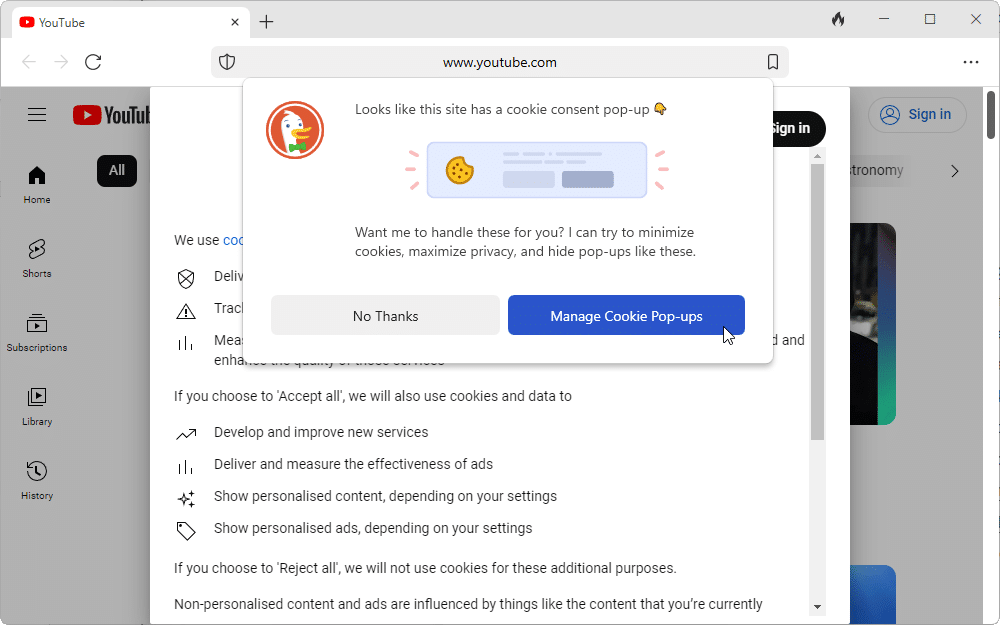
De-risk your business through regulatory resilience
Transatlantic data flows underpin more than $7 trillion in cross-border trade and investment per year, according to the U.S. Department of Commerce. The recently announced EU-US Data Privacy Framework (TADPF), in place as of July 10 2023, is expected to further promote opportunity and economic fruitfulness on both sides of the Atlantic.
However, many are rightfully questioning the staying power of this latest version of the TADPF. Will it be third-time lucky or Groundhog Day all over again? Against this backdrop of uncertainty, many companies must evaluate their short- and long-term regulatory resilience.

Why UK-based companies are at a crossroads with GDPR [Q&A]
Data privacy regulation, GDPR, has been in force for five years but it will soon be superseded by UK GDPR. The Data Protection and Digital Information Bill, now wending its way through parliament, will see organisations move to a UK equivalent following the country's withdrawal from the EU. But what will the change mean in practice?
We spoke to Jon Fielding, managing director of EMEA at Apricorn, to find out how UK GDPR will affect businesses and how they handle and protect data.

New mobile operating system focuses on security and privacy
Today's online world relies on monetizing information. Sensitive data is sourced through search engines, web browsers, and app developers and can be used to target marketing and more.
If you're concerned about how your data is used you might be interested in the launch by Myntex of Renati. This is a security-focused, Android-based mobile operating system for Pixel devices designed to disrupt data collection.

Americans want data privacy and they worry about AI
A new survey of over 1,000 Americans reveals that people are deeply concerned about their personal data, believe their data is priceless, want a national privacy law, and are pessimistic about the rise of AI and personal data.
The study for PrivacyHawk, conducted by Propeller Research, shows 45 percent are very or extremely concerned about their personal data being exploited, breached, or exposed. Over 94 percent are generally concerned. Only 5.7 percent of the US population is not concerned at all about their personal data risk.

40 million individuals exposed in healthcare data breaches
Despite an overall decline in the number of healthcare data breaches, the first half of this year has seen a record number of individuals have their information exposed.
The latest Healthcare Data Cyber Breach Report from security-as-a-service provider Critical Insight shows individual records compromised in data breaches increased by 31 percent in the first half of 2023 compared to the second half of 2022.

74 percent of cloud and web applications with PII are vulnerable to exploits
New research reveals a high proportion of vulnerable public cloud, mobile and web applications exposing sensitive data, including unsecured APIs and personal identifiable information (PII).
The study from CyCognito, based on analysis of 3.5 million assets across its enterprise customer base, finds 74 percent of assets with PII are vulnerable to at least one known major exploit, and one in 10 have at least one easily exploitable issue.

Sensitive data is exposed in over 30 percent of cloud assets
New analysis of more than 13 billion files stored in public cloud environments reveals that more than 30 percent of cloud data assets contain sensitive information.
The study by Dig Security shows personal identifiable information (PII) is the most common sensitive data type that organizations save. In a sample data set of a billion records, more than 10 million social security numbers were found -- the sixth most common type of sensitive information -- followed by almost three million credit card numbers, the seventh most common type.

Employee microchipping could be commonplace by 2030
You've probably had your dog or your cat microchipped, but how would you feel if your employer wanted to microchip you?
A survey of 5,000 senior decision makers in the finance sector reveals that 47 percent of leaders believe employee microchips and other human technology implants to be in workplace use by 2030.

The importance of data privacy in healthcare [Q&A]
Data is one of the biggest drivers of innovation in healthcare today. Almost everything in healthcare relies on having access to the right data from developing new drugs and medical equipment to allocating resources.
Making use of this data often requires sharing with other organizations and that presents challenges when it comes to keeping it secure. We spoke to Riddhiman Das, co-founder and CEO at TripleBlind, to learn how healthcare organizations are securing their data while still making it accessible.

Google rolls out privacy tools to make it easier to remove personal information and explicit images from searches
Google has announced the rollout of a series of new and updated privacy tools designed to give users greater control over the removal of information about themselves from search results. A new privacy dashboard will alert users if search results start to include their contact information.
As well as making it easier to request the removal of such personal data, Google is expanding its privacy protections to give people a way to remove personal, explicit images from search results. There are also expanded controls for limiting the appearance of other explicit images in searches.

Employees share more secrets with AI than they would in a bar
A new study of 1,000 office workers across the US and UK shows half of us already use AI tools at work, one-third weekly and 12 percent daily.
But the report from Cybsafe finds 38 percent of users of generative AI in the US admit to sharing data they wouldn't casually reveal in a bar to a friend.

Boost web privacy by installing DuckDuckGo Browser for Windows and Mac
Protecting your precious privacy when browsing gets harder by the year. With this thought in mind, privacy focused search engine DuckDuckGo has decided to dip its toes into the desktop web browser market with the recent launch of DuckDuckGo Browser for Windows Beta, which follows hot on the heels of an earlier Mac release.
This may be DuckDuckGo’s first Windows browser, but it’s an already established option on mobile (iOS and Android) in addition to the existing Mac build. Both desktop versions are built from their operating system’s browser systems, which means the Windows build -- unlike most browsers -- isn’t a simple Chromium port. Instead, it's been built from scratch using the same underlying elements as Microsoft’s Edge browser, namely Microsoft’s Windows WebView2 API on top of the Blink rendering engine.

How do you solve privacy issues with AI? It's all about the blockchain
Data is the lifeblood of artificial intelligence (AI), and the power that AI brings to the business world -- to unearth fresh insights, increase speed and efficiency, and multiply effectiveness -- flows from its ability to analyze and learn from data. The more data AI has to work with, the more reliable its results will be.
Feeding AI’s need for data means collecting it from a wide variety of sources, which has raised concerns about AI gathering, processing, and storing personal data. The fear is that the ocean of data flowing into AI engines is not properly safeguarded.

The Big Brother in your pocket: How a US company secretly tracks and rates half of the world's mobile users
Imagine a hidden system that tracks and scores you based on every phone call you make or take. It might sound like something straight out of a Black Mirror episode and remind you of China's controversial social credit system. But surprisingly, half of the world's mobile phone users are already part of a similar system, and many of them are Europeans, who are supposed to enjoy the strongest privacy protections.
NOYB, a privacy advocacy group, has filed a lawsuit against the US company TeleSign, a Belgian telecom provider BICS, and their mutual parent Proximus. They claim these companies are unauthorizedly profiling billions of phone users to assign them a 'reputation' or 'trust' score.

Brave Browser is ending behind-the-back port scanning attacks
The next major version of Brave Browser, a Chromium-based browser with a focus on privacy, will prevent sites and apps from accessing local resources without user permission.
Most modern browsers allow access to local resources. In fact, many do not differentiate between local and remote resources, and do not include options to block access to local resources.
